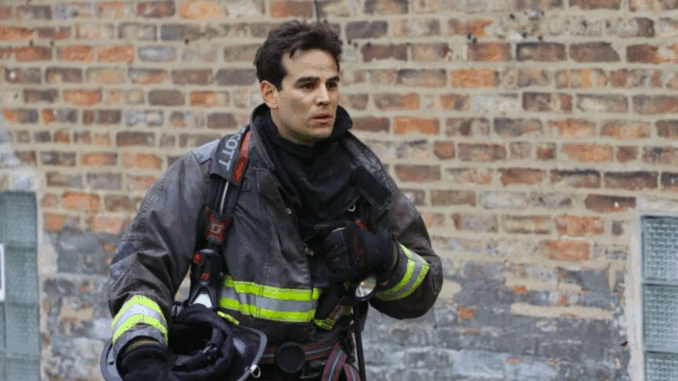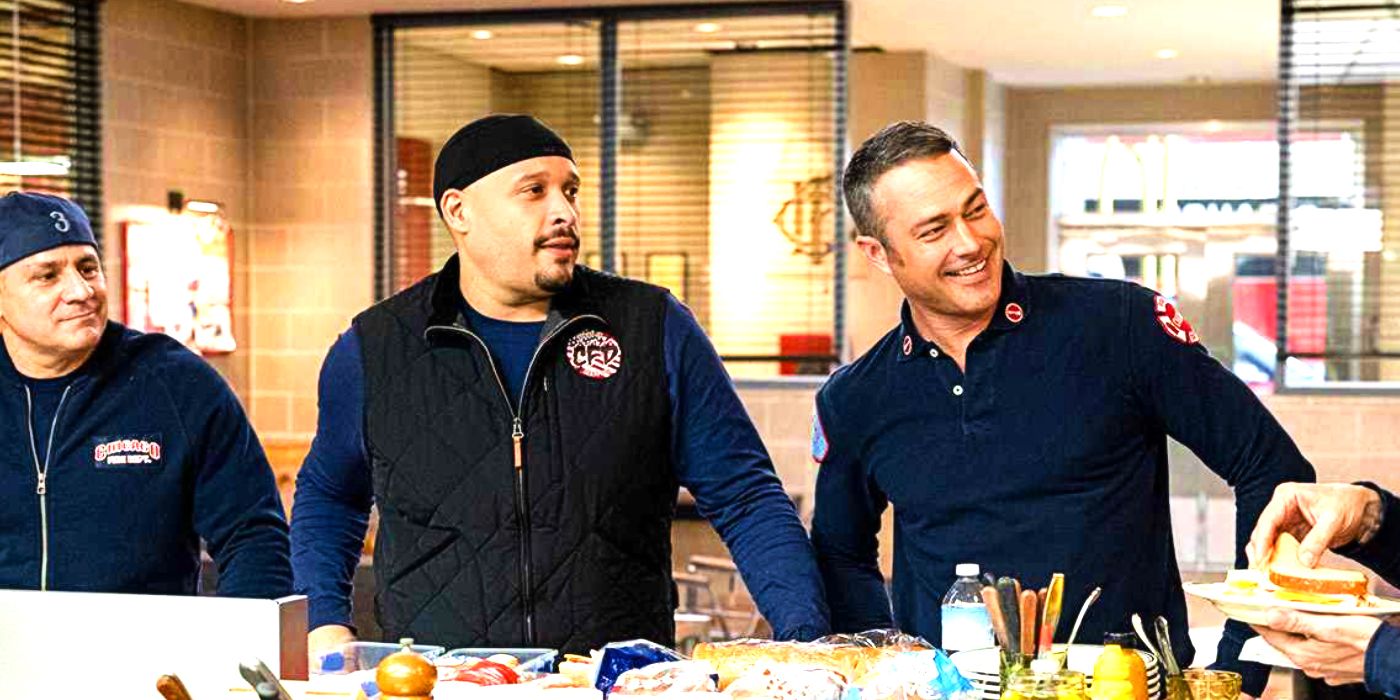
With Firehouse 51 entering a turbulent new chapter in Chicago Fire Season 14, the spotlight is shifting toward characters who’ve long played supporting roles. And none stands more at the crossroads of potential and pressure than Blake Gallo.
Young, passionate, and sometimes impulsive, Gallo has always been the adrenaline in the room. But now, in the absence of Darren Ritter and Sam Carver, he may need to become something far more complex: the emotional core of the team.
It’s a tall order—but it might be exactly what Gallo was built for.
From Rookie to Rock: Gallo’s Unexpected Journey
When Gallo (played by Alberto Rosende) first appeared in Season 8, he was a textbook hotshot—rushing into danger, eager to prove himself, and quick with a grin. He had the fire but lacked the depth. Over time, though, that changed.
Mentored by Casey and Boden, tempered by loss and heartbreak, and grounded by his relationships with Violet and Ritter, Gallo has slowly matured. He still brings the heat, but there’s more control now. More purpose.
Now, with two of his closest allies gone, the show faces a defining choice: Does Gallo regress—or rise?
Ritter’s Absence: A Personal and Professional Void
For seasons, Gallo and Ritter shared a bond that balanced chaos and calm. Ritter was the steady voice in Gallo’s ear, always reminding him to breathe before he leaps. With Ritter gone, that grounding influence disappears—and that’s dangerous.
We’ve seen Gallo spiral before—impulsive decisions on calls, bristling under authority, and emotional explosions when grief hits. Without Ritter, there’s a risk he reverts to that younger, unstable version of himself.
But this moment also opens a narrative opportunity: what if Gallo becomes the one others now turn to?
If he can channel what he learned from Ritter—empathy, patience, teamwork—he could fill the very role Ritter vacated: that of quiet stabilizer. It would be one of the show’s most powerful full-circle transformations.
Filling the Carver-Sized Hole
While Carver and Gallo weren’t especially close, their personalities often clashed in a way that pushed both to evolve. Gallo is now one of the last remaining young male firefighters at 51. As new faces enter the firehouse, will he step up as mentor—or rival?
This is an identity-defining arc. Gallo could mature into a leadership path, perhaps under Stella’s guidance, or he could combust from the pressure. In either case, the writers have a chance to rebuild Firehouse 51’s future around him.
The question is: will he be strong enough?
Romance, Regret, and Violet
It’s impossible to discuss Gallo’s evolution without mentioning Violet Mikami. Their romantic past ended with bruised hearts, but their professional connection never fractured. Now, with Violet devastated by Carver’s sudden exit, Gallo’s presence could stir old emotions—or new tensions.
Will Gallo be there for Violet as a friend? Will he try again, believing this is a second chance? Or will he watch her grieve for someone else and realize they’ve outgrown each other?
Whatever the outcome, this triangle isn’t just about romance. It’s about emotional growth—how these characters support, hurt, and help one another in moments of profound change.
A Torch Worth Carrying

Gallo was never supposed to be a cornerstone. He was the comic relief, the kid in awe of his mentors, the daredevil. But as Chicago Fire ages, so too must its core characters. Severide and Kidd can’t carry it all. Boden’s role is increasingly administrative. And Ritter is gone.
Which leaves Gallo as one of the few characters who can straddle the past and future of Firehouse 51.
If written right, his evolution into the emotional center of the team could be the most satisfying slow-burn story the show has attempted in years.
What Season 14 Needs to Get Right
To make this arc work, Chicago Fire must resist easy tropes. Gallo can’t just become a flawless hero overnight. His struggle should be messy, frustrating, human. He should clash with Stella. He should mourn Ritter and feel survivor’s guilt. He should make mistakes—and grow from them.
The payoff? A more complex, nuanced Firehouse 51—one led not just by veterans, but by a younger generation that’s finally ready to carry the weight
Chicago Fire has always been about more than sirens and smoke. It’s about how people hold each other together in the heat of chaos. And maybe—just maybe—Season 14 is the year Blake Gallo stops running into fires and starts leading others out of them.